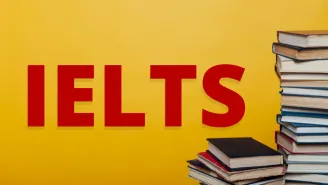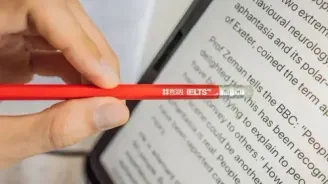Why Companies Should Welcome Disorder Reading Passage
Why Companies Should Welcome Disorder Reading Passage
Paragraph A: The business of the organisation is massive. This requirement is met by a multibillion-dollar industry that caters to the organisational needs of both individuals and businesses.
There has never been a time in human history when there were so many methods available for managing one's time, projects, and personal organisation. We are told that if we want to be more productive, we need to organise our work lives, personal lives, work weeks, daily lives, and sleep schedules. Every week, millions of people pay to attend seminars and workshops that instruct them on how to best organise their lives to achieve this goal.
Some business leaders and entrepreneurs have begun to adopt this language, much to the delight of perfectionists who insist on nothing less than absolute excellence. Over the past 50 years, there has been a huge increase in the number of business schools and graduates whose main purpose is to instruct individuals in effective organisational practices.
Paragraph B: The number of businesses that fail, however, has also been on the rise. Tensions at work have grown. A sizable fraction of workers across all demographics report being unhappy with their jobs and supervisors.
What could possibly have gone wrong? Why does the effort to be more organised seem like a sure bet on paper for boosting productivity but fall so far short of the mark in practice?
Paragraph C: For some time, this has been an issue. A pioneer in the field of scientific management, Frederick Taylor deserves recognition. He published his ideas in the first half of the twentieth century, and his principles for streamlining business operations are now widely used. Consequently, this method has been used for quite some time.
Paragraph D: According to recent studies, this fixation on efficiency is misplaced. It is not so much the management theories or strategies that we use to organise our work that are at fault, as it is the fundamental beliefs that underlie those approaches. For our purposes here, let's assume that order is equivalent to efficiency. As a corollary, this thinking has promoted the view that chaos must reduce efficiency in the workplace. As a result, organisations and individuals waste resources on futile efforts to become more organised rather than considering the benefits of doing so.
Paragraph E: Further, there are diminishing returns to order, as shown by recent research. It's true that establishing some degree of orderliness boosts output initially, but after a while, the process of organising and the results it produces become less valuable, to the point where more order actually hinders output. There are those who believe that formalising a business practice is unnecessary if the time and money spent on it are outweighed by the benefits. There are more worthwhile uses for money and time.
Paragraph F: In fact, studies have shown that the most effective method of innovating is to foster an atmosphere devoid of structure and hierarchy, in which all participants are encouraged to work together as a single organic unit. New solutions may emerge in these settings that would be impossible in more traditionally structured settings (with their inherent bottlenecks in information flow, power structures, rules, and routines).
Paragraph G: Companies have been gradually warming up to this disorder in recent years. Some of them accept it both in terms of outlook (they welcome the idea of chaos rather than reject it) and method (putting mechanisms in place to reduce structure).
Hearing aid maker Oticon, based in Denmark, adopted a "spaghetti" organisational structure to break down rigid hierarchies. This meant doing away with titles and giving employees a great deal of autonomy over their work and schedules. There was an immediate and noticeable increase in worker productivity across the board after adopting this strategy.
Similarly, the former chairman of General Electric embraced anarchy and proposed the concept of a "boundaryless" business. Again, this means removing physical and digital barriers to communication and cooperation within an organisation. Google and other tech companies have adopted such fluid organisational structures, made possible by advances in communication and collaboration tools and supported by a shared commitment to the company's core values.
Paragraph H: For those considering joining the bandwagon, it's worth noting that, like order, the disorder appears to have diminishing utility and can have negative effects on performance if used too frequently. Both order and disorder should be welcomed only to the extent that they serve a purpose. We shouldn't be afraid of it or hold any one religion in higher esteem than another. This study also demonstrates the importance of regularly reevaluating our underlying presumptions.
Also Read: IELTS Pattern and Format
Why Companies Should Welcome Disorder Reading Questions and Answers
Discover exciting and informative IELTS reading answers about Why Companies Should Welcome Disorder.






